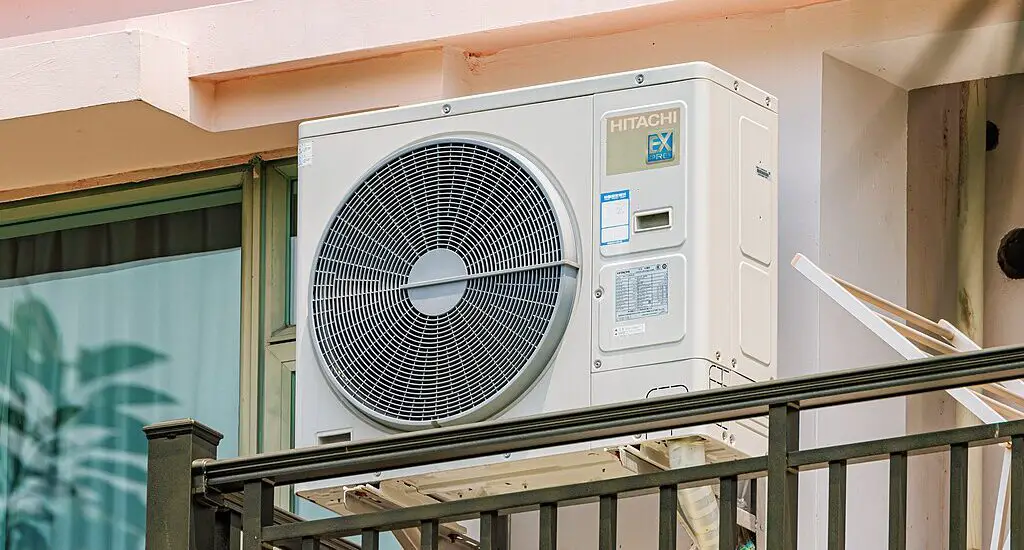This comprehensive guide is designed to demystify why Freon leaks in home AC units and provide practical solutions, ensuring your system runs smoothly and efficiently.

Table of Contents
Why Freon Leaks in Home AC?
Understanding the specific causes of Freon leaks in home AC units is crucial for effective maintenance and repair. These leaks can be attributed to several factors:
Corrosion
Metal parts within the AC, particularly the evaporator and condenser coils, are prone to corrosion over time. This corrosion is often caused by exposure to air pollutants, moisture, or chemicals that react with the metal, resulting in small holes or cracks. These defects allow Freon to escape, diminishing the efficiency of your AC.
Vibration
The natural operation of the AC unit causes vibrations. Continuous vibration over time can lead to the loosening of refrigerant line connections and other critical components. These loose connections can become leak points for Freon. Regular checks can help in tightening these connections and preventing leaks.
Factory Defects
In some cases, leaks are due to manufacturing defects, such as inadequate welding, poor-quality valves, or flawed refrigerant lines. These defects might not be apparent immediately and can develop into leaks over time. Routine inspections, especially during the warranty period, can help in identifying such defects early.
Improper Installation
An AC unit installed incorrectly can have several issues leading to Freon leaks. This includes improperly fitted connections, mismatched components, and inadequate sealing. Using certified professionals for installation and regular checks can prevent such issues.
Age and Wear
Over time, the components of an AC unit deteriorate. This wear and tear can affect seals, hoses, and connections, leading to leaks. Components like rubber seals can become brittle and break, creating leakages. Regular maintenance helps in identifying and replacing worn-out parts, preventing leaks.
Identifying Freon Leaks
Detecting a Freon leak early is key to maintaining your AC’s efficiency. Be aware of these signs:
Reduced Cooling Efficiency: A noticeable decrease in cooling efficiency often indicates a Freon leak. The AC may struggle to cool your home effectively due to the diminished refrigerant levels.
Extended Running Time: If your AC unit runs for longer periods than usual to achieve the same cooling effect, it could suggest a leak. This is because the system has to work harder to compensate for the lost Freon.
Ice Formation: Ice forming on the evaporator coils can be a sign of low Freon levels. When there isn’t enough refrigerant, the coils can become too cold, causing the moisture in the air to freeze on them.
Increased Electricity Bills: An indirect sign of a Freon leak is a sudden increase in electricity bills. This is because the AC unit consumes more power when trying to maintain the desired temperature with a compromised refrigerant level.
Due to Freon’s environmental and health risks, it’s important to have a certified professional inspect your AC unit if you suspect a leak.
Professional Repair and DIY Considerations
When it comes to repairing Freon leaks, professional assistance is often necessary. Here’s why:
Handling of Freon: Freon is a controlled substance, and its handling is regulated by environmental laws. Certified technicians have the training and legal authorization to safely handle and dispose of Freon.
Complexity of Repair: Identifying the exact location of a Freon leak and repairing it correctly requires specialized tools and expertise. Incorrect repairs can lead to further damage or inefficient operation.
Risks of DIY: Attempting DIY repairs on a Freon leak can be risky. Without proper knowledge and tools, one can cause more harm than good, potentially leading to health hazards, environmental damage, or voiding your AC unit’s warranty.
While some minor AC maintenance tasks can be DIY, Freon leak repairs are best left to professionals.
Preventing Future Leaks
To minimize the risk of future Freon leaks in your home AC, consider these preventive measures:
Regular Maintenance: Scheduling regular maintenance checks with a certified technician can help identify potential issues before they turn into leaks. Technicians can spot early signs of wear and tear, corrosion, or loose connections.
Proper Installation: Ensuring that your AC system is installed correctly by a certified professional can prevent many common causes of Freon leaks. This includes correct fitting of all parts, proper sealing, and ensuring that the system is free from manufacturing defects.
Timely Repairs: Addressing small issues promptly can prevent them from escalating into bigger problems. For instance, replacing worn seals or tightening loose connections as soon as they are noticed can avoid Freon leaks.
Environmental Considerations: Protecting your AC unit from harsh environmental conditions like extreme moisture or exposure to corrosive chemicals can help prolong its lifespan and prevent leaks.
By following these steps, you can significantly reduce the likelihood of experiencing Freon leaks in your home AC system.